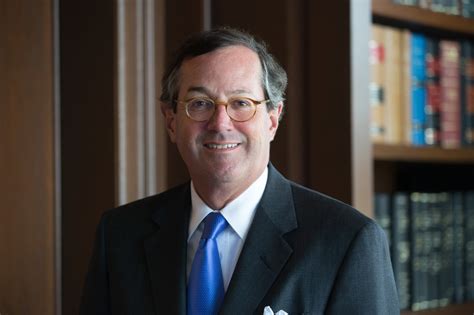A Quote by Wilbur Ross
If you think about it: a big bank in any country, what is it? Really, as an investment, it's a warrant on economy.
Related Quotes
This is one way that wealthy Americans could really contribute. They could put hundreds of millions of dollars into the infrastructure bank, be a good investment for them, for their children, for their grandchildren, and they would directly contribute to revitalizing a big sector of middle-class wages in America and making our country more productive, so that we could create more opportunity. But I think that we could get a lot of grassroots support from, like, local chambers of commerce and other things if they understood exactly how this infrastructure bank would work.
As a matter of fact 25% of our U.S. investment banking business comes out of our commercial bank. So it's a competitive advantage for both the investment bank - which gets a huge volume of business - and the commercial bank because the commercial bank can walk into a company and say, "Oh, if you need X, Y and Z in Japan or China, we can do that for you."
Has Obama ever grown even a potted plant, much less a business, a bank, a hospital or any of the numerous other institutions whose decisions he wants to control and override? But he can talk glibly about growing the economy. Arrogance is no substitute for experience. That is why the country is in the mess it is in now.
What we prefer to do is operate our investment bank in a way that is like what investment banks used to be, which is a middle man - someone who is here to match people who need capital with people who have capital - and not position ourselves at the center of that by taking big positions on a trading stance.
One thing that's really interesting is not only the magnitude of the recent immigration into this country, but also its distribution and its investment in the country. About 9.3 percent of the population is now foreign-born [announced by the Census Bureau at over 10 percent a few days later]. What's really surprising is how well distributed those population groups are. Historically, we see new immigrants primarily on the coast and in a few big cities. I think the data are going to show a much wider distribution of the new population groups than we've experienced historically.


































